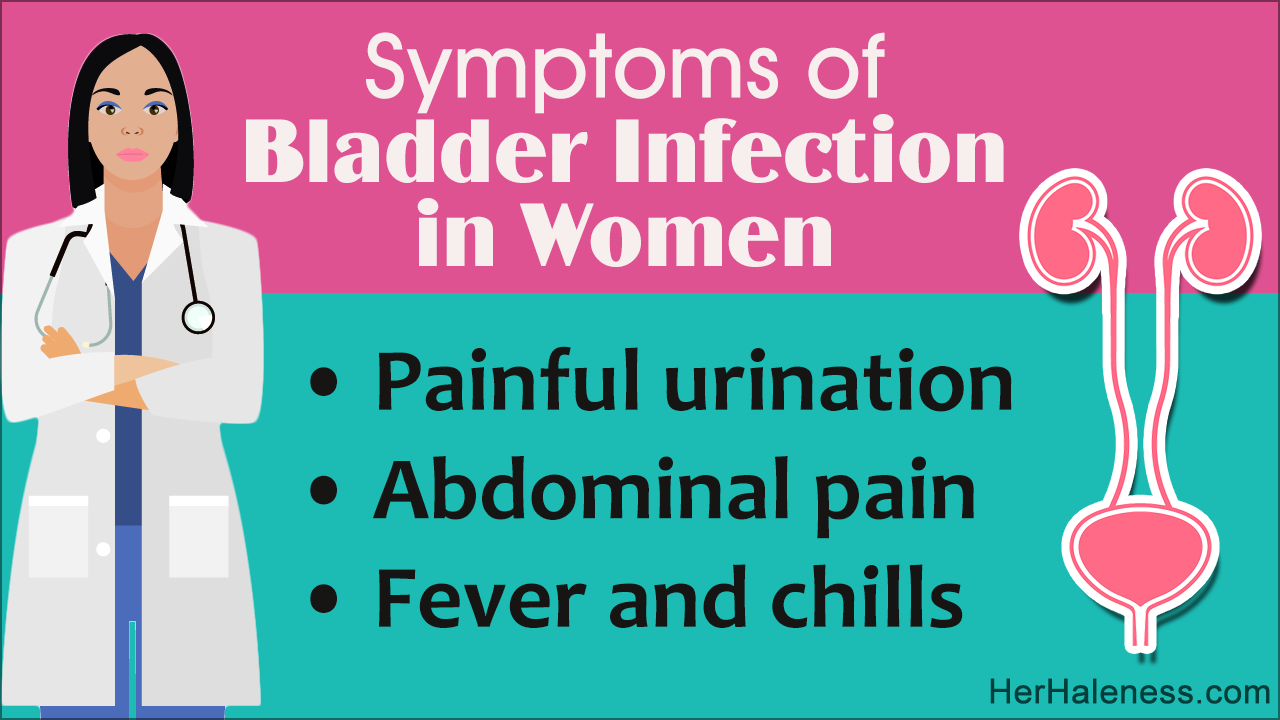
A burning sensation, frequent urge to urinate, and pain in the abdomen are some of the common symptoms of a bladder infection. The article to come will tell you more about the symptoms of this type of urinary tract infection along with ways in which you can treat it.
A type of urinary tract infection, bladder infection in women is caused by the inflammation of the bladder. This form of infection is also known as cystitis. When the bacteria move from the colon to the bladder and the infestation of the bacteria in the bladder grows abnormally, it can lead to a bladder infection. Unlike men, these infections are quite common in women. Nearly 20 percent of the women suffer from its symptoms at some point or the other in their lives. One of the main reasons for this is the short size of the urethra, which allows the bacteria to move easily to the bladder. The proximity of the urethra to the vagina and the anus can also lead to bacterial infection of the bladder.
In the majority of the cases, bladder infections are not a serious condition and can be treated quite easily. However, they do reoccur quite frequently in women, who have suffered from this infection. Identifying the symptoms of this infection can allow you to take appropriate treatment measures.
Mild Symptoms
Painful Urination
Discomfort, pain, burning or stinging sensation while urinating — also known as dysuria — can indicate a urinary tract infection in women. The stinging pain increases once you start urinating and then lingers on for quite some time. This can be extremely uncomfortable and irritating for anyone suffering from this problem.
Need to Urinate Frequently
Women suffering from a bladder infection often feel the need to urinate frequently. Despite the urge to urinate, you may or may not pass sufficient urine at all times. The need to urinate can persist even in the night. Some people, especially the elderly, can lose their urinary control at night.
Foul-smelling Urine
Women suffering from bladder infection can notice a change in the smell and appearance of the urine. The urine may have a foul smell and may be cloudy or concentrated in appearance.
Pain in the Lower Abdomen
Bladder infections are often accompanied by pain and discomfort in the abdomen and the lower back. There is a constant pelvic pressure and pain that can be extremely uncomfortable. The pain can persist during and after sexual intercourse.
The symptoms seen in women range from mild to severe. Many a time, women suffering from a mild infection of the bladder may not even experience any symptoms. Such asymptomatic cases may not really be a cause of serious concern. However, when the infection passes on from the bladder and affects the kidneys and other organs, it can result in severe symptoms.
Severe Symptoms
Visible Traces of Blood in Urine
Spotting or traces of blood in the urine can indicate a kidney infection, or tumors in the kidney, or bladder. Sometimes, the traces of blood may not be noticeable. Diagnostic tests recommended by the doctor can help in discerning the blood in urine. It is important to keep in mind that kidney infections are difficult to treat and can even be life-threatening in certain cases. Hence, it is advisable to consult a doctor immediately.
Fever and Chills
When the infection affects the kidneys, it can cause mild fever and chills in the patient. This fever may be persistent even after taking medications for fever. Sometimes, nausea and vomiting can also be observed.
Recurrent Bladder Infections
Despite proper treatment, if you have recurrent bladder infections, then it may be necessary to consult a physician. Usually, this infection tends to recur once, or twice every year in the majority of the women. This may be due to improper hygiene, lack of care, and other such factors. However, the frequent infection can signal a severe condition, which needs to be addressed immediately.
Causes
The growth of Escherichia coli or Staphylococcus saprophyticus bacteria is one of the common contributing factors for the bladder infection. The risk increases with infections in the genitourinary system. This could be caused by:
- Increased sexual activity
- Poor hygiene
- Pregnancy
- Stress
- Alcohol abuse
- An illness which results in lowered resistance
- Blockages in the urinary tract
- Contraceptives that contain spermicide
Treatment
Many a time, women suffering from a mild bladder infection may not even experience any symptoms — this is not considered grave. However, there is a need to watch out for the aforementioned symptoms in women. To alleviate the symptoms, antibiotics and self-care measures can be used.
Use of Antibiotics
Bacteria are usually the causative agents of a bladder infection, and hence the treatment usually involves the use of antibiotics.
Self-care Remedies
- Increase your water intake. You must drink at least 8 glasses of water every day. It would be best to avoid caffeine, excessive sugar, and alcohol. Having cranberry juice is also known to reduce the painful symptoms of bladder infection.
- Bladder infections can also occur if you are unable to empty the bladder completely. This could be due to the presence of bladder stones. Under such circumstances, you must seek medical help for getting rid of bladder stones.
Personal Hygiene
- Urinate before and after indulging in sexual intercourse. Make sure that you wash the vaginal area well, and dry it completely.
- Bacteria flourish in a warm and moist environment. So, it is important to keep the vaginal area clean and dry. Wearing cotton undergarments will improve air circulation and help in discouraging bacterial growth. Avoid wearing tight clothes.
Women must ensure that they seek medical help as soon as the signs manifest themselves. While drug therapy can help in alleviating symptoms, precautionary measures can help in lowering the risk of urinary tract infections in future.
Disclaimer: The information provided in this article is solely for educating the reader. It is not intended to be a substitute for the advice of a medical professional.



